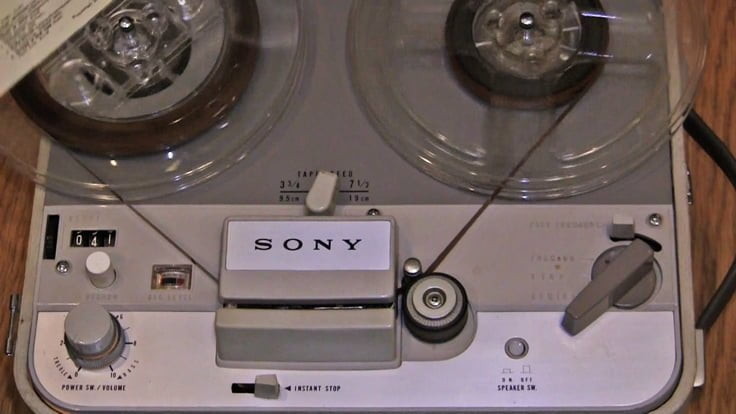This time of year we take time to reflect on what we have to be thankful for. Since July 1, 1987 when the format debuted on WFAN in New York, sports radio has a lot to be thankful for. Some of these will be new, some may have more gray hair on them. Here we go, the things sports radio has to be thankful for:
- Jeff Smulyan/Emmis: Likely someone else would have stumbled their way upon what is now a juggernaut of a radio format, but they didn’t. Instead, Emmis’ Jeff Smulyan went for it in when he started WFAN in 1987 and never looked back. For everyone who works or has worked in sports radio, we ought to be thankful to Jeff Smulyan.
- The Cell Phone: Hard to think of life without your phone today, but the technological explosion of “car phone” which became “cell phones” then “mobile phones” and now “smart phones” were and are essential to the format. These phones enabled the connection between the callers and the stations they listened to. Additionally, cell phones allowed greater access to guests literally from the field. I remember the early days of The Score/820 AM in Chicago when players were put on the air via these brick-like cell phones.

- The Internet: Let’s just assume I’m old enough to have worked in sports radio before the internet. Back in 1994 if we needed a baseball player’s stats and it wasn’t in the local paper or USA Today, we had to call the team’s PR department and have them read us his stats over the phone. Now it’s nearly impossible to imagine a sports radio show without the internet. Talent can now host from nearly anywhere over the internet. Stations can reach their fans directly via social media or email blasts.
- Newspapers: While the newspaper business has seen a steep decline over the past 20 years, a quick look at some of the nation’s top sports radio talent shows they came from the sports pages. You don’t have to look far. 98.5 The Sports Hub in Boston’s top rated afternoon show features two sportswriters–Mike Felger and Tony Massarotti. Interestingly, when sports radio first started it was sharply criticized by sports writers.
- Digital recording/editing: The hours saved by digital recording and editing cannot even be counted. An industry that used to record shows on cassette tapes and Betamax video tapes, was now spared the storage and sorting nightmare that years and years of shows created. This also includes mobile recording for reporters in the field. No more clunky Marantz cassette recorders. For editing, digital audio files replaced reel to reel tape, grease pencils and razor blades.

- Free Food: Anyone who works or has worked in sports radio understands the thrill of hearing that there is free food in the station. That is immediately followed by the panic that it’s all going to be gone before you get some. Whether it is bagels or donuts for breakfast; pizza, bbq or sandwiches for lunch; ribs or steak for dinner, free food has sustained sports radio station employees from coast to coast.
- Loyal Advertisers: It’s easy to sponsor a station that today is pulling a 10 share in afternoon drive but think back to the early days of your local sports station, those advertisers were really taking a leap of faith. Car dealerships, bars, beer companies, gentlemen’s clubs, hardware stores, restaurants, you name it. The faith of many of these sponsors helped to sustain stations until the ratings arrived. Over the years sports radio has shown that their loyal followers support their sponsors.
- Football As much as I LOVE baseball, sports radio wouldn’t be what it has become without football. Look at any major station in the country and you will find talk about the NFL or college football dominating at least half the year. In some markets football dominates all year round. WJOX in Birmingham is a great example of a station that rarely needs to talk about anything but football.
- Legalized Sports Gambling: Sports betting related programming has exploded in local and national sports radio. When the Supreme Court ruled in May of 2018 to allow states to allow legalized sports gambling, the race was on. VSIN and Matt Perrault were at the forefront of the new genre. Now everyone is jumping on this hot new sector of sports radio.

- Live play by play: In today’s age of podcasts and everything being on-demand, live radio play-by-play has never been more important to a sports radio station. Not only does play-by-play provide cume and ratings, it’s one of the few things that you have to catch live. Plus the many added programming, promotional and ad sales opportunities that come with being involved with a major pro or college team are a huge reason why radio play by play is as hot as it has ever been.
There are probably at least 100 people and 20 more topics I could have thanked for this Thanksgiving, but this gives a good glimpse at what put sports radio on the map and what will sustain it for years to come. Happy Thanksgiving!!
Matt Fishman is a former columnist for BSM. The current PD of ESPN Cleveland has a lengthy resume in sports radio programming. His career stops include SiriusXM, 670 The Score in Chicago, and 610 Sports in Kansas City. You can follow him on Twitter @FatMishman20 or you can email him at FishmanSolutions@gmail.com.








